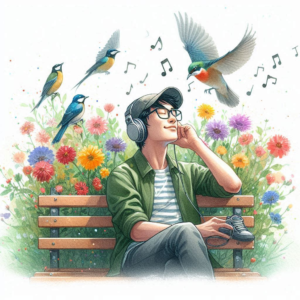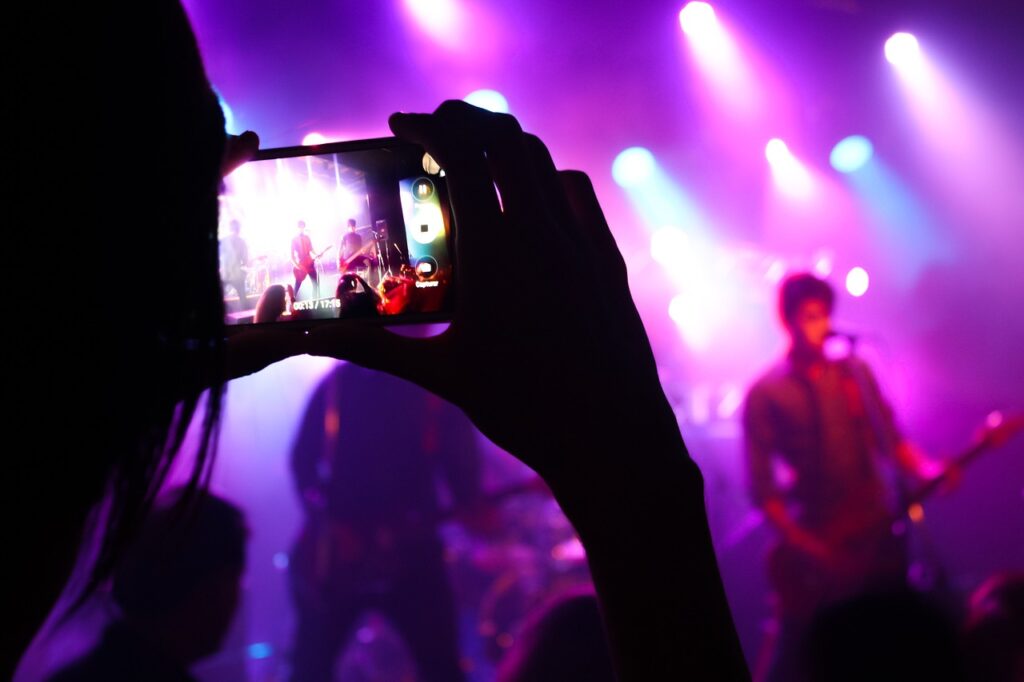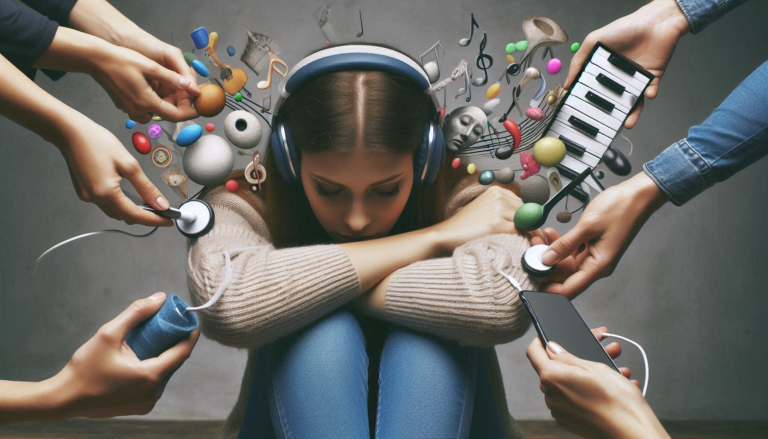The world throws a lot at us these days. News headlines scream about conflicts, social media feeds overflow with negativity, and the daily grind can leave us feeling overwhelmed and stressed. It’s easy to get bogged down by the constant noise pollution, both literal and figurative. But amidst this cacophony, there exists a powerful force that cuts through – music. On World Music Day, celebrated annually on June 21st, let’s explore how music acts as a balm for the soul, promoting mental well-being and fostering connections across borders.
The Science Behind the Harmony: How Music Impacts Our Brains
Music isn’t just a source of entertainment; it has a profound impact on our brains and overall well-being. Studies have shown that listening to music can trigger the release of dopamine, a neurotransmitter associated with pleasure and reward. This “feel-good” chemical can elevate our mood and reduce stress hormones like cortisol. Additionally, music stimulates the limbic system, the part of the brain responsible for emotions and memories.

A 2013 study published in the Journal of Neuroscience found that listening to music can activate the same brain regions associated with reward processing as delicious food or social interaction. This explains why music can be so emotionally evocative and why it can provide a sense of comfort and connection.
There’s more to the story – music can also be a powerful tool for managing anxiety. A 2017 meta-analysis published in PLOS One reviewed 30 studies on the effects of music on anxiety. The researchers found that listening to music significantly reduced anxiety symptoms in a variety of situations, including before surgery, during dental procedures, and even for people with chronic anxiety disorders.
Global Beats, Local Healing: Music Therapy Around the World
The power of music for mental well-being isn’t just limited to anecdotal evidence. Music therapy is a recognized form of therapy that uses music to improve a person’s physical, emotional, and mental health. According to the American Music Therapy Association, music therapy can be used to address a wide range of issues, including anxiety, depression, pain management, and even cognitive decline.

Music therapy is practiced all over the world, with each culture utilizing music in unique ways to promote healing. In Africa, drumming circles are used to foster community and emotional expression. In India, raga music, a system of melodic modes, is believed to have specific healing properties depending on the raga chosen.
Harmony for the Soul: How Artists Use Music to Promote Mental Wellness

The power of music for mental well-being isn’t lost on artists themselves. Many musicians are actively using their platforms to promote mental health awareness and encourage self-care. Here are some examples of how artists from around the world are incorporating mental health themes into their music:
- K-Pop’s Mental Health Champions: BTS and the “Love Myself” Campaign
BTS, the global K-Pop phenomenon from South Korea, is a shining example of how music can be used to promote mental health awareness. Their lyrics often touch on themes of self-doubt, social pressures, and the importance of self-love. Songs like “Spring Day” offer messages of hope and perseverance during difficult times.
BTS’s “Love Myself” campaign, launched in collaboration with UNICEF in 2017, goes even further. This global movement encourages self-acceptance and kindness. Through music, social media engagement, and partnerships with mental health organizations, BTS is using their platform to empower young people around the world to prioritize their mental well-being.
- Bollywood’s Comforting Voice: Arijit Singh and the Power of Emotional Release
Across the globe, the soulful voice of Arijit Singh offers a different kind of musical therapy in Bollywood films. His melancholic ballads, like “Tum Hi Ho” (from Aashiqui 2), can evoke feelings of sadness and provide a cathartic release for those experiencing heartbreak. Listening to music that reflects your emotions can be a healthy way to process difficult feelings.
- Punjabi Power with a Positive Message: Diljit Dosanjh’s Upbeat Antidote
Diljit Dosanjh, the Punjabi superstar known for his infectious beats and electrifying performances, offers a unique form of mental health support through his music. His songs, like “Proper Patola,” get you moving, promoting physical activity. Additionally, the sense of community and celebration fostered by Diljit’s music can combat feelings of isolation and loneliness, which are major risk factors for mental health struggles.
Studies have shown that regular physical activity can significantly reduce symptoms of depression and anxiety.
- Sharing Stories & Finding Strength: Taylor Swift’s Pop Therapy
Taylor Swift, the American pop music icon, uses her music to create a sense of solidarity with her fans. Her songs often tackle themes of self-doubt, bullying, and overcoming negativity. Tracks like “Shake It Off” and “Mean” empower listeners to deal with these challenges. By turning her personal experiences into music, Taylor creates a powerful sense of “we’re all in this together.” Singing along to relatable lyrics can be a form of therapy, allowing fans to process their own emotions and find strength in shared experiences.
A 2020 study published in Psychology of Music explored how music listening can promote social connection. Researchers found that listening to music with others can increase feelings of closeness and belonging. This further emphasizes the power of music to foster a sense of community, which is crucial for mental well-being.
Building a World in Harmony: Music as a Tool for Mental Health Advocacy

The artists mentioned above are just a few examples of how music is being used to promote mental health awareness. Here are some ways we can further leverage the power of music for mental well-being:
- Supporting Music Therapy Programs: Music therapy is a proven and effective tool for improving mental health. Donating to organizations that offer music therapy programs or advocating for increased access to music therapy services can make a significant difference.
- Creating Playlists for Well-being: Music streaming platforms offer a wealth of music to choose from. Curating playlists with songs that uplift, motivate, or provide a sense of calm can be a valuable self-care tool.
- Sharing Music with Loved Ones: Creating a shared playlist or attending concerts with friends and family can be a fun way to connect and boost your mood. Music has the power to bring people together and foster a sense of belonging.
The Final Note: A World United by Song
In a world increasingly divided by conflict and negativity, music emerges as a powerful force for good. It transcends borders, languages, and cultures, offering a universal language of healing and connection. Whether it’s the self-love anthems of BTS, the emotionally evocative ballads of Arijit Singh, the high-energy beats of Diljit Dosanjh, or the relatable narratives of Taylor Swift, music provides a space for emotional expression, self-reflection, and community building.

